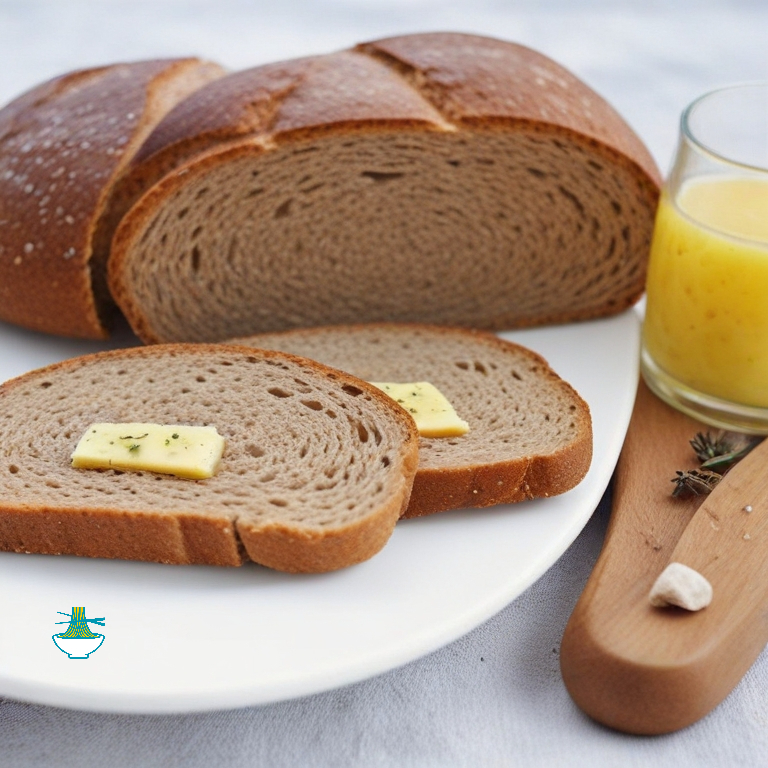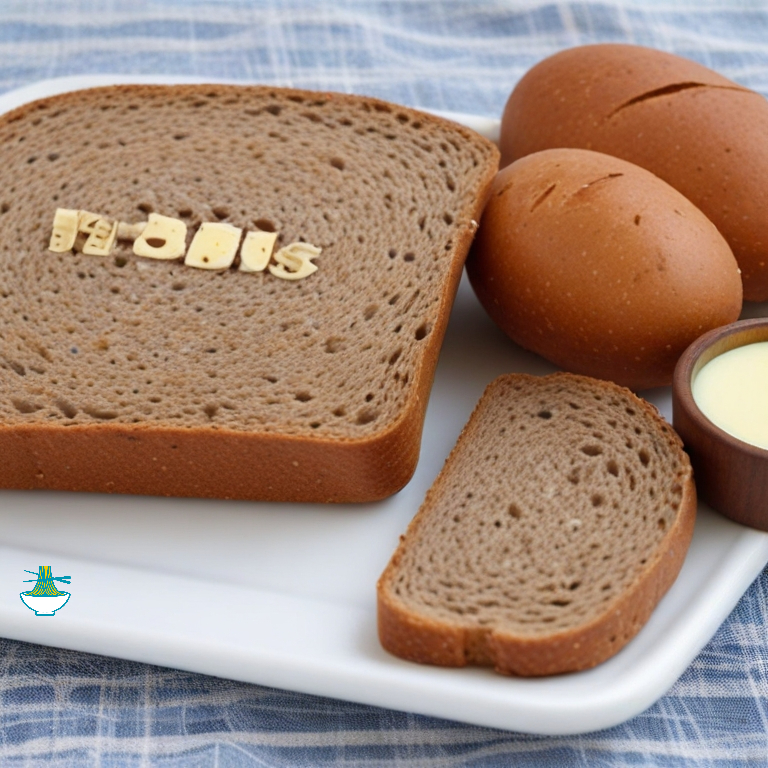Indulge in the timeless allure of Finnish cuisine with our signature Ruisleipä, a cherished Nordic delicacy. Originating from the heart of Finland's culinary heritage, Ruisleipä, also known as Finnish rye bread, embodies a perfect blend of rustic simplicity and irresistible flavor. Crafted using traditional methods passed down through generations, each loaf is a testament to the artistry and dedication of Finnish bakers.
Made primarily from whole grain rye flour, our Ruisleipä boasts a dense, hearty texture and a rich, earthy taste that captivates the palate with every bite. Its distinctively dark crust and dense crumb reveal a depth of flavor that's uniquely Finnish, evoking the essence of Finland's picturesque landscapes and pristine wilderness.
Savor the wholesome goodness of our Finnish Ruisleipä as a versatile accompaniment to any meal or enjoy it simply with a spread of creamy butter or savory cheese. Whether enjoyed fresh from the oven or toasted to perfection, each slice is a reminder of Finland's culinary prowess and the enduring legacy of its time-honored bread-making traditions. Experience the authentic taste of Finland with every slice of our exquisite Ruisleipä.
Ingredients:
- 500g whole grain rye flour
- 250g whole grain wheat flour
- 20g fresh yeast (or 7g dry yeast)
- 600ml lukewarm water
- 10g salt
- 1 tbsp syrup or molasses (optional, for added sweetness)
- 1 tbsp caraway seeds (optional, for extra flavor)

Instructions:
1- In a large mixing bowl, dissolve the yeast in lukewarm water. Let it sit for a few minutes until frothy.
2- Add the salt and syrup/molasses to the yeast mixture and stir to combine.
3- Gradually add the whole grain rye flour and whole grain wheat flour to the mixture, stirring continuously until a sticky dough forms.
4- If using caraway seeds, add them to the dough and knead until they are evenly distributed.
5- Cover the bowl with a clean kitchen towel and let the dough rise in a warm place for about 1-2 hours, or until it has doubled in size.
6- Preheat your oven to 220°C (425°F). Place a baking stone or baking sheet in the oven to preheat.
7- Once the dough has risen, punch it down to release any air bubbles, then shape it into one or two round loaves.
8- Place the loaves on a baking sheet lined with parchment paper or a silicone baking mat. Let them rise for another 30-60 minutes.
9- Before baking, you can sprinkle some additional caraway seeds on top of the loaves for decoration, if desired.
10- Bake the loaves in the preheated oven for 30-40 minutes, or until they are golden brown and sound hollow when tapped on the bottom.
11- Remove the loaves from the oven and let them cool on a wire rack before slicing.
Once cooled, your Finnish Ruisleipä is ready to be enjoyed with butter and cheese or cold cuts, just like they do in Finland. This hearty bread is perfect for breakfast, lunch, or as a snack any time of the day.
Nutritional Values:
Whole grain rye flour (per 100g):
- Calories: 338 kcal
- Protein: 7.4g
- Carbohydrates: 75g
- Fiber: 15.1g
- Fat: 1.3g
benefits
- Rich in dietary fiber, which aids in digestion and promotes gut health.
- Contains vitamins and minerals such as manganese, magnesium, and phosphorus.
- Helps regulate blood sugar levels due to its low glycemic index.
- Provides sustained energy release, keeping you feeling full and satisfied for longer periods.
Whole grain wheat flour (per 100g):
- Calories: 339 kcal
- Protein: 13.2g
- Carbohydrates: 70.6g
- Fiber: 12.2g
- Fat: 2.3g
benefits
- Excellent source of complex carbohydrates for energy.
- Contains significant amounts of protein for muscle repair and growth.
- High in dietary fiber, promoting digestive health and regularity.
- Provides essential nutrients like B vitamins (thiamine, riboflavin, niacin) and minerals such as iron and zinc.
Fresh yeast (per 100g):
- Calories: 105 kcal
- Protein: 16.3g
- Carbohydrates: 11.9g
- Fat: 1.8g
benefits
- Acts as a leavening agent, helping the bread dough rise and develop a light, airy texture.
- Provides a natural source of B vitamins, particularly B1 (thiamine) and B2 (riboflavin), which are important for energy metabolism.
- Contains trace amounts of minerals like selenium and potassium.
Salt (per 100g):
- Calories: 0 kcal
- Protein: 0g
- Carbohydrates: 0g
- Fat: 0g
- Sodium: 38758mg (It's important to note that you typically use a small amount of salt in the recipe, so the actual sodium content per serving would be much lower.)
benefits
- Enhances flavor and helps balance the overall taste of the bread.
- Plays a role in regulating fluid balance and nerve function in the body.
- Important for maintaining proper muscle function and transmitting nerve impulses.
Syrup or molasses (per 100g):
- Calories: 290 kcal
- Protein: 0.4g
- Carbohydrates: 75g
- Fiber: 0g
- Fat: 0g
benefits
- Adds sweetness and depth of flavor to the bread.
- Contains trace minerals such as iron, calcium, and potassium.
- Provides energy in the form of simple sugars, which can be readily utilized by the body.
Caraway seeds (per 100g):
- Calories: 333 kcal
- Protein: 19.8g
- Carbohydrates: 49.9g
- Fiber: 38g
- Fat: 14.6g
benefits
- Contribute a distinct aroma and flavor to the bread.
- Rich in antioxidants that help combat inflammation and oxidative stress.
- Contains essential oils with digestive properties, aiding in relieving bloating and indigestion.
- Adds a crunchy texture and visual appeal to the finished bread.
These values are approximate and can vary based on factors such as brand, processing methods, and specific varieties of the ingredients used. Additionally, the nutritional values for the overall bread recipe would depend on the specific proportions of each ingredient used.


Comments